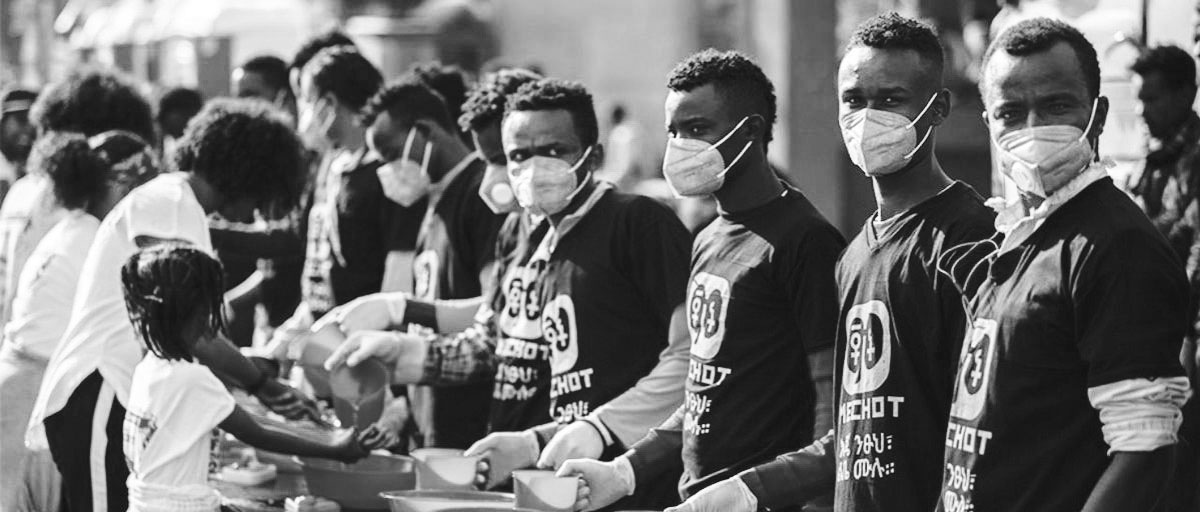
As a developing country Ethiopia strives to attain economic, social and political development. During the last two decades it has achieved a lot in economic progress that contributed to poverty reduction.
But unfortunately the nation faced the COVID19 pandemic which could be a drawback for the gained development.
The emergence of Coronavirus, which is a global challenge, has posed a socio economic threat. Unless it is curbed through coordinated efforts, the consequence might be unpredictable.
Since the discovery of victims of the corona virus threat a month ago by the Ministry of Health and the Ethiopian Social Health Institute the government has deployed its immense resources to curb the pandemic.
As the virus gets transmitted from one to another through sneezing and coughing, social distancing and washing hands have been undertaken as prevention measure. The Ethiopian Airline has cut down its passengers’ flight routes to 10 percent of it and dwelled in cargo flights.
The very few passengers entering to the country on the arrival will be sent to quarantine centers and so for thousands are made go through blood test and more than 120 have proved that they have contracted the virus. Out of them, more than 50 infected persons have recouped.
Educational institutions from elementary up to higher education are closed.
Civil servants, with the exception of the few employee assigned to must-do tasks are ordered to stay at home. Open markets are also obliged to abide by the rule which stipulates social distancing.
The council of representatives has introduced curfew which lasts for five months as a preventive measure to the pandemic and law enforcing institutions such as the Attorney general and the police are authorized to strictly enforce it.
Obviously to alleviate the problem efforts from governments, individuals, businesses, and various stakeholders are essential.
According to the recent study of the Ethiopian Economic Association, the pandemic triggers a number of shocks simultaneously including health, supply, demand and financial shocks Efforts by governments to control the COVID-19 pandemic through partial and full business closures unavoidably leads to general decline in economic activities domestically and globally.
The International Labor Organization also warned that, societies with a lower economic status are more vulnerable to rising rates of chronic illness from the COVID-19 further complicated the economic and social welfare hardships. This, in turn, further supresses productivity and raises health
care costs, leading to increased poverty, and again more disease.
From an economic perspective, the key issue is not just the number of cases of the COVID-19, but the level of disruption to economic activities which in turn aggravates the level of health risks.
Most of the economic impact of the virus will be from the actions people and governments take to avoid the virus and this response comes from three sources. First, government imposes bans on certain types of business activities such as restaurants, shops, etc. Second, firms and institutions take precautionary measures such as business closures, resulting wages cuts of workers, especially in the informal economy where there is no paid leave. Finally, individuals abstain from heading to the market, traveling, going out, and other social activities, affecting the demand side of the economy.
This contraction in economic activities leads to economic recession if the pandemic lasts for long.
According the Addis Ababa City Mayor Office’s report there are about 400 thousand daily laborers engaged in the construction sector and forcing them to stay put at home will never be feasible. Rather, it aggravates social chaos.
According to the EEA study as the virus is seen a surge, countries are expected to incur huge costs pertaining to the pandemic. Some of the direct and indirect economic costs of the COVID-19 include instituting surveillance measures, establishing and operationalizing quarantines, putting money into social awareness programs, importing sanitation products, personal protective equipment, respirators, masks, gloves and other supplies, instruments and devices such as testing kits and regents, media air time and communication materials, cost of shifting personnel and equipment from standard health care services to the pandemic response, and costs of supporting the needy particularly the elderly and the poor, among others.
In this regard, developed economies
have injected massive amounts of money into their respective national economies specially prioritizing sectors that have been affected by the pandemic.
The study further indicates that, in contrast to the developed economies, Ethiopia’s economy is unlikely to sustain infusion of cash or dramatically increase welfare-dependent population. Furthermore, the
measures being taken in other countries to contain the pandemic may not apply in total in Ethiopia, given the difference in local context generally, fears of economic slowdown are real and putting down deep roots.
The effect of a slowdown in economic growth would make massive disruption in various sectors. It is, therefore, necessary to estimate the economic and welfare impacts of the coronavirus in the context of Ethiopia in order to design effective strategies that would minimize shocks to health and economic activities.
To contain the pandemic context-preventive measures against the COVID-19 are generally suggested to be hand washing, avoiding contact with others, social distancing, respiratory hygiene, reliable and up-to-date information about the pandemic, wearing of masks for health workers and infected groups, and isolation (self-monitoring, self-isolating, and isolating) after infection or suspicion for infection. However, the relevance and feasibility of such measures are, to a great extent, determined by the level of development and welfare of the societies and countries.
Poverty, access to basic services and facilities, and social structure, and demography largely influence the extent to which people are vulnerable to the pandemic. People’s income, place of residence, age and living status also matters in this regard.
Local and international scientists predict the peck time of the pandemic has not yet to come and some say months later might be. Hence, social distancing and using masks should be strictly continued. In fact our way of life is critically socialized be it in time of happiness or sadness.
Such situation still hampers the public not to abide by the rules introduced by the government. Though the preparedness on the government’s side vigilantly continues, more responsibility is needed on the part of the public. Because, in case, the spread of the disease reaches in its climax stage, the already modest health system might be overwhelmed and fail to meet the demand.
The Ethiopian Herald may 10/2020
BY ABEBE WOLDE GIORGIS





